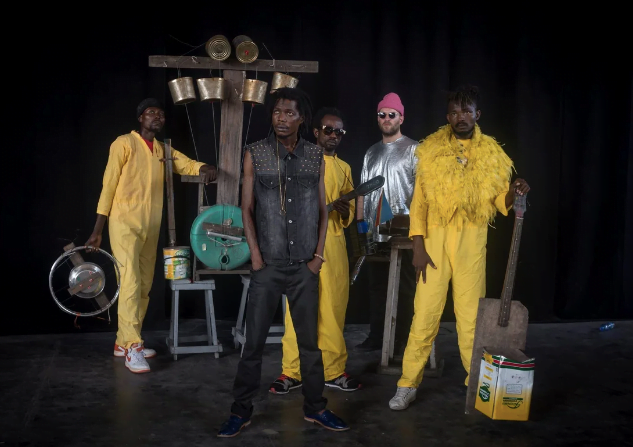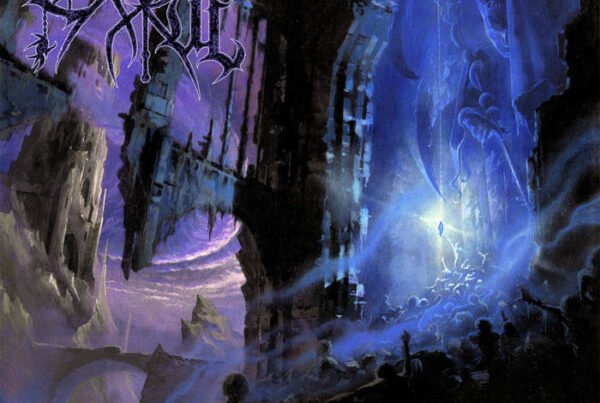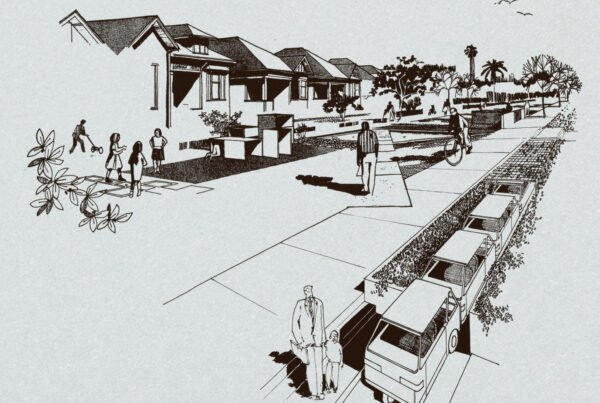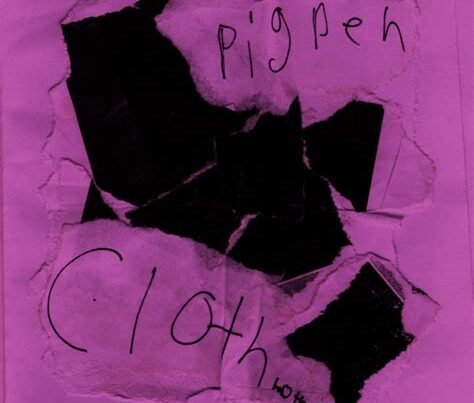Congolese band KOKOKO! bridge the urban blight of modern day Kinshasa with the sounds of the bush on their exhilarating new album BUTU.
Release date: July 7, 2024 | Transgressive Records | Facebook | Instagram | X | Bandcamp
One of the most profound musical experiences I’ve ever had was in a basement bar in the sweaty African port city of Douala, Cameroon. I had lived in the country for almost four years, and was invited by a couple of the guards that worked at my apartment complex. It was a performance by an underground rap collective. I wasn’t even told their name, so the experience just exists there in perpetuity. There was no stage- just a tiny, dark complex with about a dozen tables covered in plastic cloth that advertised the local brewery, an empty corner where the band was to perform, and two giant speakers on poles framing the linoleum stage. About fifty people were there, all of them probably friends of the band. Three guys came on in sunglasses and full on fatigues, backing tracks pumping at impossibly distorted levels through the cheap speakers, and they proceeded to spit the most angry, passionate vitriolic shit I’d ever heard, mostly in French and their local dialect.
I’d seen many bands in Cameroon at that point- armed with cheap equipment and loads of talent, these bands would play variations of the local makossa music or the Congolese ndombolo for hours, warming up at eight in the evening and not stopping until the sun came up the next day. Cameroon, at this point, was, however, just another spoke on the wheel of African music, a rich tapestry of sounds that radiated off a single hub: the sweltering, landlocked center of the continent, Kinshasa, the capital of the Democratic Republic of the Congo.
KOKOKO! originated off this hub, a Congolese musical collective based in the sweaty, pulsating streets of the capital city, a cacophony of beeping horns, crackling street-side fires, and the rhythmic shouts of the fula fula boys trying to drum up fare. It’s urban living at its rawest: close to the beat of the ground, the concrete covering the red earth of African soil, oscillating to the wild wavelengths of our planet. The band represents the resolve of the Congolese people: in a country where access to instruments can be difficult if not downright impossible, it’s time to make your own. Two cans and a wooden fretboard make a guitar. The discarded parts of an air conditioner are used to simulate a drum kit. Kick drums are made from steel air duct boxes, and a series of detergent bottles make a great line of congas. The sounds produced by this ragtag collection of instruments are industrial yet organic, and with the assistance of French producer Débruit- who helped the band get their start in 2016- the songs move with authority, confidence and passion.
Like the classic Congotronic band Konono Nº1, KOKOKO! deals literally with the sounds of Kinshasa; however, the addition of Débruit’s economic use of sampled sounds and synth lines updates these sounds for a world in which a Tesla Cybertruck seems to be an acceptable form of transportation. It is, in other words, music for the age. “Butu Ezo Ya” starts their new album BUTU as a call to arms: starting with the sounds of car horns as a synth swells underneath, the band propels the song forward with the clanging and banging of their guerilla instruments. Singing in Lingala, the band not so much sings as shouts. This energy continues with “Baza Banga”. An overdriven bass line that wouldn’t be out of place on an IDLES album leads off, before the guitar line and the gang chimes in with the chorus of the title (‘they are afraid’, in Lingala, a common phrase used as a source of frustration from the Congolese). The inspired beats of the drums are a frenetic, twitching rhythmic orgy of makeshift percussion that rivals that of any Roland TR-808. The band’s electronic pedigree is second-to-none and they’d be just as good a fit to a stage at Tomorrowland or Ibiza as any European DJ with headphones and a turntable.
It’s this unique commitment to the beat, coupled with a minimalist, punk rock attitude, that makes this album such a compelling one. Songs like “Donne Moi” continue with this righteous rage, a simple three note bass line, with an airy, almost playful, melody over it. The two-stringed guitar is distorted, yet layered in the mix in the way that seems like an extra coat of paint. It threatens to burst into a four-on-the-floor techno explosion, but the ndombolo rhythm played on the drums keep it grounded in the rural energy of a Congolese village, a song that exists for the effortless dancing that characterizes so much of the energy of Africa. “Mokili,” the most straight-forward banger on the album, uses a slightly affected bass line as a backbone for the song, as the band shouts about the state of their world, mokili, over the deep rumble rolled out by the rhythm section. It’s the kind of song that would be guaranteed to get an entire crowd of human beings, no matter where they were in the mokili, moving until they were one sweaty undulating mass of flesh.
BUTU, as successful as it is a straight-up dance album, is much more than that. There’s a dark ambience to all the compositions, an acknowledgment that for all their willingness to dance in the face of injustice and poverty, they still haven’t forgotten how emotionally oppressive living in that shadow can be. Each song is painted with sounds from the gothic past, many of these sounding as if they could have been hand-picked from a number of artists from the 4AD days. “Kidoka”, for instance, has a keyboard that sounds like something lifted off a Dead Can Dance album, giving it an eeriness that adds to the already existing intensity of the track.
This is explosive, revolutionary music- the kind of dissonant anti-art response that arose from New York City in the late ’70s and early ’80s and Berlin after that. But taken in context of a country that is run by an aging elite that has no problem engaging rolling blackouts while their generators keep their imported bottles of French wine cold, BUTU serves as a bid to combat for those who are still drinking liquor from plastic sachets. It’s this energy that resonates with the person I was years ago. It’s hard to think of the adversity the musicians I had the honor to witness faced as they performed at the other end of the spoke radiating off of Kinshasa’s vibrant, celebratory hub. In a world in which most people live just this side of abject poverty, if not right in the ghastly heart of it, it’s encouraging to think music exists right beside us- that the discarded metal, plastic tubs, copper tubing, and other signs of life’s debris can be used to make a difference in the midst of all this pain. Couple this with the power that lies within our own lungs, and maybe bands like KOKOKO! and their album BUTU can serve as one small aural step in making this world a little better, if even for just one danceable moment.






